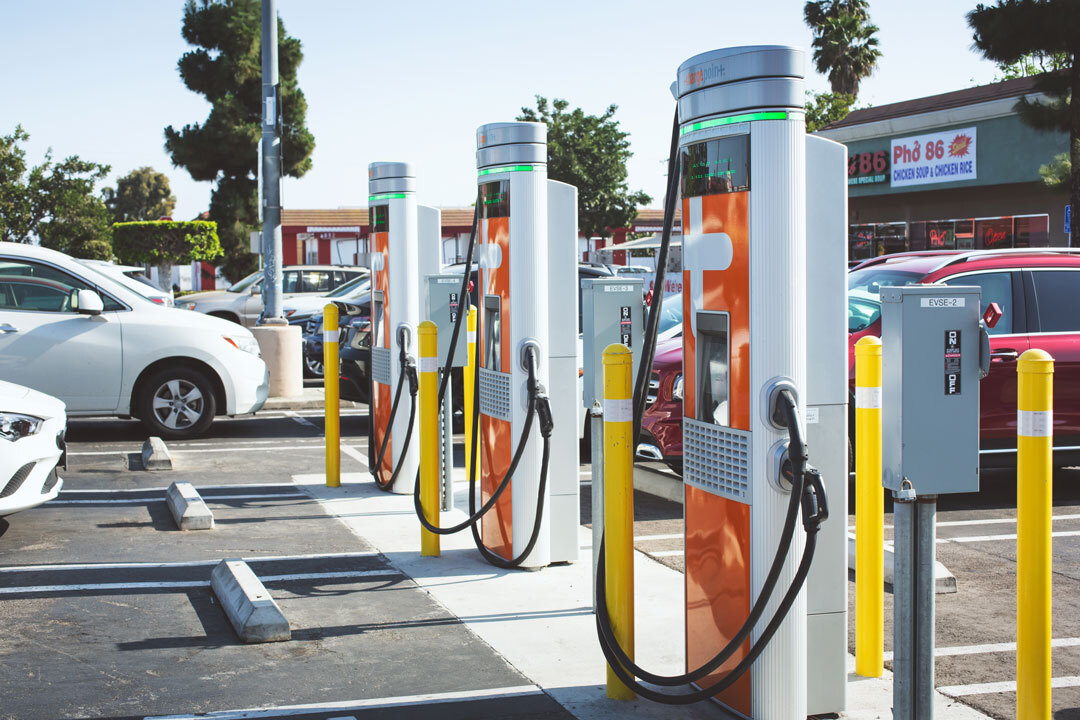10 Ways Owning An Electric Vehicle Will Save You Money
ACE Staff Writer
|March 30, 2023

Electric vehicles (EVs) have become increasingly popular in recent years due to their sustainability and efficiency. However, many people are still hesitant to switch to an electric vehicle because of their higher upfront cost. The good news is, owning an EV can actually save you money in the long run. In this blog post, we will discuss 10 ways owning an electric vehicle will save you money.
10 Ways Owning An Electric Vehicle Will Save You Money
1) Lower fuel costs
One of the biggest advantages of owning an EV is the lower fuel costs. EVs are powered by electricity, which is significantly cheaper than gasoline. According to a study by the U.S. Department of Energy, the average cost of electricity in the United States is $0.17 per kilowatt-hour (kWh), while the average cost of gasoline is $3.46 per gallon at the time of writing. Based on these prices, the cost of driving an EV is about 50% less than driving a gasoline-powered vehicle. This is estimated to save as much as $14,500 on fuel costs over 15 years. If there is war in an oil-rich region of the world, your saving may be even more—besides the fact that you have decoupled yourself substantially from oil mongering global wars.
2) Reduced maintenance costs
EVs have fewer moving parts than gasoline-powered vehicles, which means they require less maintenance. For example, EVs don’t require oil changes, spark plug replacements, or transmission fluid changes. This can save you a significant amount of money over the life of your vehicle. According to Consumer Reports, EV owners can save up to $4,600 in maintenance costs over the life of their vehicle.
3) EV prices are coming down and fast
Gone are the days when an average EV cost over $50,000. Today’s cheapest EVs (like the Chevy Bolt) may cost under $20,000 after all the incentives and still have a listed range of over 250 miles per charge. This is in part because of the rapidly declining cost of batteries as they become more efficient and use far less rare metals than just a few years ago.
4) Tax incentives and rebates
The federal government and many state governments offer tax incentives and rebates to encourage consumers to purchase EVs. These incentives can help offset the higher upfront cost of an EV. The Inflation Reduction Act (IRA) is a recent example of this. The IRA, which was signed into law in 2022, increases the electric vehicle tax credit to $7,500 for vehicles purchased before 2031 and for used EVs offers a tax credit of $4,000. The credit is also now fully refundable and available to all consumers regardless of income. Many states also offer additional incentives, such as rebates, tax credits, and HOV lane access.
5) Long-term savings on electricity rates
Another advantage of owning an EV is the potential for long-term savings on electricity rates. Many electric utilities offer special rates for EV owners, which can be significantly lower than standard residential rates. For example, some utilities offer time-of-use rates, which charge a lower rate for electricity during off-peak hours when demand is lower. This can result in significant savings over the life of your EV.
6) Higher resale value
EVs typically have higher resale values than gasoline-powered vehicles. According to a study from the automotive website Kelley Blue Book, EVs retain their value better than traditional gas-powered cars. This is due in part to the fact that EVs are still a relatively new technology, so they hold their value better as the technology continues to improve. Additionally, EVs have fewer maintenance costs, which can help preserve their value over time.
7) Lower insurance costs
EVs can also save you money on insurance. According to a report by the Insurance Institute for Highway Safety (IIHS), EVs are involved in fewer accidents than gasoline-powered cars. This is partly due to their quieter operation and the fact EV have better security features including advanced driver assist technology, which can result in less aggressive driving. As a result, some insurance companies offer lower rates for EVs.
8) Reduced carbon emissions
While not directly related to cost savings, owning an EV can also help reduce your carbon footprint. EVs produce significantly fewer emissions than gasoline-powered vehicles, which can help reduce the impact of climate change. According to a report by the Union of Concerned Scientists, EVs produce 50% less carbon emissions than the average gasoline-powered vehicle. While reducing emissions may not have a direct impact on your finances, it can help reduce the overall cost of climate change and its associated economic impacts.
9) Improved performance
EVs offer superior performance compared to gasoline-powered vehicles. They offer instant torque and acceleration, which can make them more fun to drive. Additionally, because they don’t have a traditional transmission, they can offer a smoother and more comfortable ride. While performance may not be a direct cost-saving factor, it can increase the overall value of an EV and make it a more enjoyable vehicle to own and drive.
10) Reduced noise pollution
EVs produce significantly less noise than gasoline-powered vehicles, which can help reduce noise pollution in urban areas. This is particularly important for people who live in cities, where noise pollution can have a significant impact on quality of life. Additionally, because EVs produce less noise, they can be driven at night or in residential areas without disturbing neighbors. While this may not have a direct financial impact, it can improve quality of life and make EVs a more attractive option for urban residents.
BONUS: Lower overall cost of ownership
When you factor in all of the cost savings associated with owning an EV, including lower fuel and maintenance costs, tax incentives and rebates, and higher resale value, the overall cost of ownership can be significantly lower than that of a gasoline-powered vehicle. According to a study by Consumer Reports, the total cost of ownership for an EV can be up to 60% lower than that of a gasoline-powered vehicle over the life of the vehicle.
In summary, owning an EV can save you money in many ways, from lower fuel and maintenance costs to tax incentives and long-term savings on electricity rates. Additionally, EVs offer superior performance, reduced noise pollution, and lower carbon emissions. With the recent passage of the Inflation Reduction Act, the cost of purchasing an EV has become even more affordable. If you’re in the market for a new vehicle, it’s worth considering an EV to save money in the long run.
Join our Youth Action Network
More Blog Posts

Unnatural, Not Unprecedented
For two weeks, residents of Southern California endured a waking nightmare. Parents raced against time – hurrying down the driveway …
Read MoreCrafting a Vision for the Future: My Experience at LCOY USA 2024
Dry and sunny Tempe, Arizona where temperatures have been over 100 F for 113 consecutive days, delegates gathered to attend …
Read More
7 Ways to Weatherproof Your Home on the Cheap (+1 Not-So-Cheap)
As colder weather sets in, understanding how to weatherproof your home is key to maintaining warmth and reducing energy costs. …
Read More